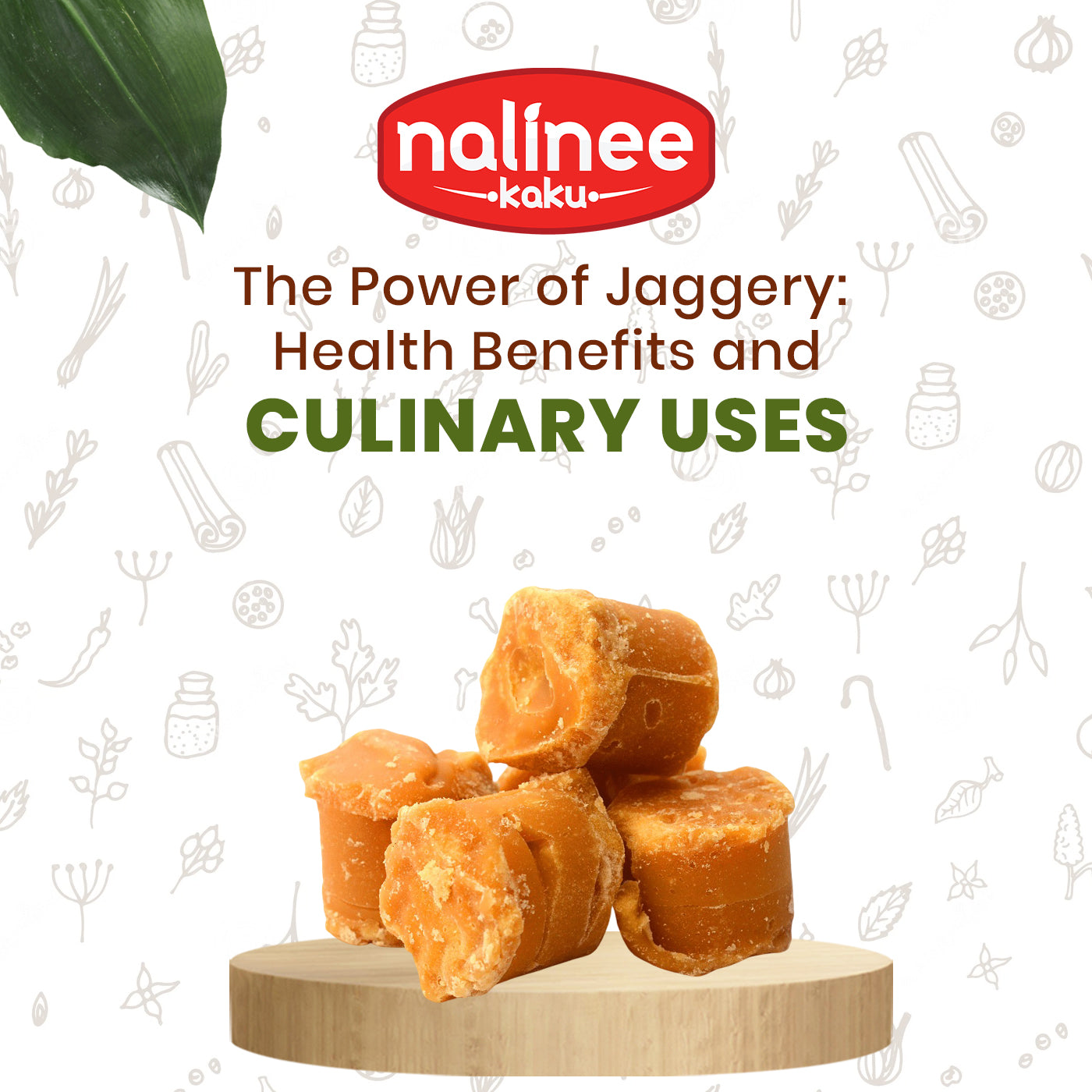The Power of Jaggery: Health Benefits and Culinary Uses

Introduction
Jaggery, a traditional sweetener made from sugarcane or date palm sap, has been a staple in various cuisines for centuries. Known for its rich flavor and natural sweetness, jaggery offers numerous health benefits and versatile culinary uses. This blog explores the power of jaggery, its health benefits, and how you can incorporate it into your cooking.
What is Jaggery?
a. Production Process
Jaggery is made by extracting juice from sugarcane or date palms and then boiling it until it solidifies. The result is a golden-brown, unrefined sweetener with a distinct flavor and natural minerals. Unlike refined sugars, jaggery retains the nutrients from the original sap, making it a healthier alternative.
b. Types of Jaggery
There are different types of jaggery based on the source and production method. Sugarcane jaggery is the most common, while date palm jaggery offers a unique flavor profile. Understanding these variations can help you choose the right type of jaggery for your recipes.
Health Benefits of Jaggery
a. Rich in Nutrients
Jaggery is a good source of essential nutrients, including iron, calcium, magnesium, and potassium. These minerals contribute to overall health and support various bodily functions. For example, iron in jaggery helps prevent anemia, while calcium supports bone health.
b. Digestive Health
Jaggery is known for its digestive benefits. It acts as a natural laxative and helps improve bowel movements. Consuming jaggery after meals can aid digestion and prevent constipation.
c. Detoxification
Jaggery helps detoxify the body by promoting the elimination of toxins. It supports liver function and helps flush out impurities, contributing to overall wellness.
Culinary Uses of Jaggery
a. Sweetening Dishes
Jaggery can be used as a natural sweetener in various dishes, from desserts to savory recipes. It adds a rich, caramel-like flavor to sweets such as cakes, cookies, and puddings.
b. Traditional Recipes
Many traditional recipes use jaggery as a key ingredient. For example, in Indian cuisine, jaggery is used in dishes like chikki (nut brittle) and gur ka halwa (sweet pudding). Incorporating jaggery into your cooking can add authenticity and depth to your dishes.
c. Substituting for Refined Sugar
Jaggery can be used as a substitute for refined sugar in many recipes. It provides a more natural sweetness and additional nutrients compared to processed sugars.
Comparing Jaggery to Refined Sugars
a. Nutritional Value
Unlike refined sugars, which are devoid of nutrients, jaggery retains essential vitamins and minerals. This makes jaggery a healthier alternative for sweetening your food.
b. Flavor Profile
Jaggery offers a unique, rich flavor that adds complexity to dishes. Refined sugars have a more neutral taste, which may not provide the same depth of flavor.
c. Health Impact
Refined sugars can contribute to various health issues, including weight gain and diabetes. Jaggery, with its natural nutrients and lower glycemic index, offers a healthier option for satisfying your sweet tooth.
Conclusion
Jaggery is a powerful sweetener with numerous health benefits and versatile culinary uses. By incorporating jaggery into your cooking, you can enjoy its rich flavor while benefiting from its nutritional value and health-promoting properties.



